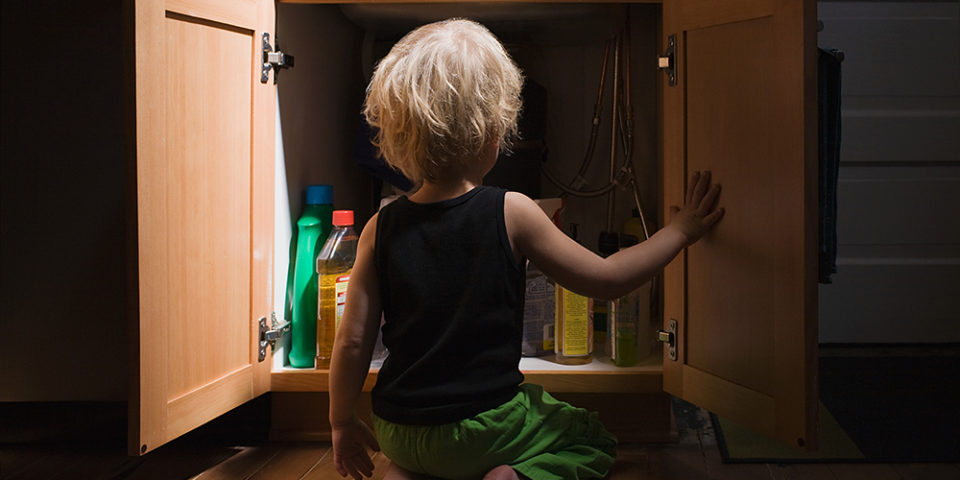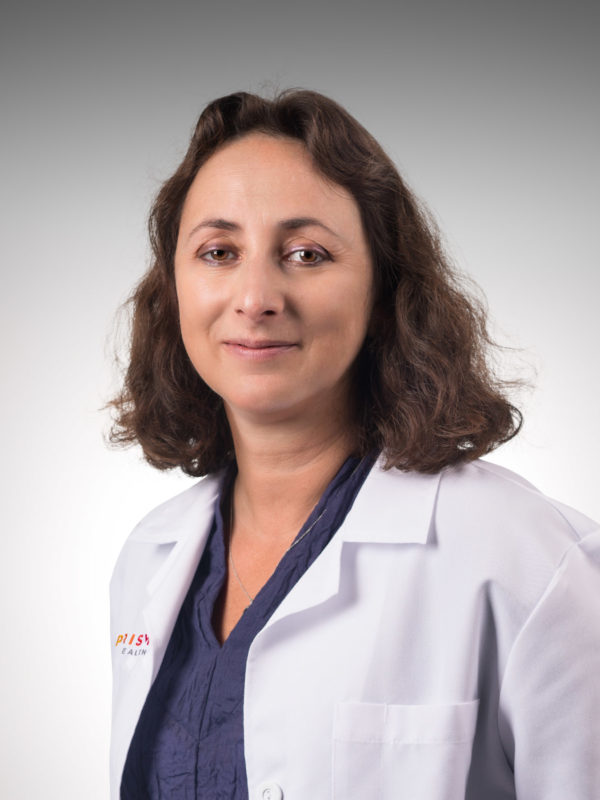5 poison prevention tips for children
Many poisonings occur when an adult transfers a toxic substance from an original container into another container, such as a soda bottle. Pediatric gastroenterologist Yuliya Rekhtman, MD, has seen a number of toxic ingestions occur when a child picks up a soda bottle or cup containing oven cleaner, hair relaxer, toilet bowl cleaner or another caustic substance. When it comes to poison prevention tips for children, avoiding this possibility is a first essential step.
“The most important thing parents and caregivers can do is leave products in their original containers and store them up high, out of the reach of children,” Dr. Rekhtman said.
Each year, unintentional poisoning is the cause of death for approximately 100 children aged 14 years and under.
- Nearly 90% of these toxic exposures occur in the home.
- 56% involve non-pharmaceutical products such as cosmetics, cleansers, personal care products, plants, pesticides, art supplies, alcohol and toys.
Dr. Rekhtman cautions that it may not be apparent whether a toxic ingestion has occurred just by looking at the child’s mouth, because the damage may be in the esophagus. “Damage can be significant, especially with ingestions of liquid compounds,” said Dr. Rekhtman. “If you suspect your child has swallowed something toxic, do not make the child drink anything and do not induce vomiting.”
Dr. Rekhtman offered these poison prevention tips to help you protect your children.
Keep laundry detergent packs out of reach. Laundry detergent packs have been of high concern. Highly concentrated single-load laundry or dishwasher detergent pods can cause serious harm to children. Serious symptoms include excessive vomiting, wheezing, extreme sleepiness or even needing the assistance of a ventilator to help them breathe. These packs are colorful and enticing to small children. Make sure detergent packs are locked up, high and out of the reach of children.
One pill can kill. Acetaminophen products (such as Tylenol) are the number one toxic ingestion item. Do not leave medicine in a purse or on a counter. In the case of certain prescription medications − one pill can kill. Prescription narcotics such as hydrocodone, oxycodone and methadone are among these dangerous pain medications. Keep medications out of the reach of children.
Keep an eye on items with small batteries. Tiny button batteries are used in watches, calculators, cameras, hearing aids, musical greeting cards, flameless candles, small toys, electronics and promotional items. Certain items are very easy for a child to break open and find the battery. Miniature batteries may cause poisoning if swallowed and can also cause internal burns if they become lodged in the esophagus or intestinal tract. If you suspect a child has swallowed a battery of any type, seek immediate medical attention.
Know the hazards of magnets. Small magnets can seriously injure a child if two or more are swallowed because they can connect to one another through the intestinal walls. This traps the magnets in place and can cause perforations, twisting and/or blockage of the intestines, infection and potentially fatal blood poisoning. Surgery usually is required to remove magnets.
Lock up your household cleaning supplies. Ingestions of caustic household powders and liquids can cause serious burns in the mouth and esophagus. Caustic substances include detergents, pool cleaning chemicals, drain cleaners, hair relaxers, fertilizers, weed killers and many types of household cleaning products. A burn in the esophagus can cause life-long problems.
If your child has swallowed a foreign object or substance, you should do the following:
- If the child is choking and/or turning blue, call 911 immediately.
- If initial choking distress has passed, contact your pediatrician for instructions.
- Observe the child closely. A coin or object can be lodged in the esophagus for days.
- Do not feed the child or administer liquids. This will make the object lodge farther down. If your child ingests a poisonous substance, call the Palmetto Poison Center (PPC) immediately at 1-800-222-1222.
Warning signs of ingesting a foreign object include gagging, drooling and sometimes coughing. An ingested object can potentially obstruct a child’s air passage.
The PPC offers assistance 24/7. The PPC is staffed by healthcare professionals, including pharmacists and nurses, who are formally trained in toxicology as specialists in poison information and who can give further poison prevention tips as well as helping during a worrisome or emergency situation. Take a moment to add the PPC phone number to your contacts: 1-800-222-1222.
Find the care you need, close to home
Our primary care physicians provide well visits and everyday care when you need it with compassion and expertise.
Find Primary Care Near You

